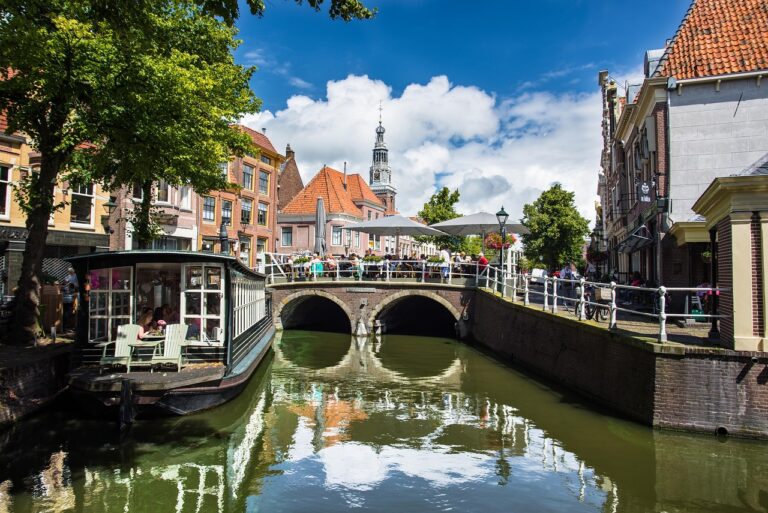Moving Abroad Made Easy: Tips for Leaving the USA and Thriving in Europe

Moving abroad is a life-changing decision that’s filled with promise, excitement, and a fair share of challenges. For many Americans, the idea of leaving the USA to start fresh in Europe has broad appeal. Whether it’s the vibrant cultures, lower cost of living, or rich history, Europe draws expats looking for new beginnings. However, making this transition smooth requires careful preparation and a good understanding of what lies ahead. From planning your finances to adjusting to a new lifestyle, there’s a lot to consider. This guide is designed to make moving abroad easier by breaking down key steps and offering practical tips to thrive in your new European home.
Europe offers remarkable opportunities for adventure, personal growth, and cultural immersion, making it an ideal destination for expats. Alongside these tips, we’ll point you to resources like From Castles to Cafes: The Most Fun Things to Do in Europe, highlighting the richness of life abroad.
Why Move Abroad? Benefits of Leaving the USA for Europe
A New Lifestyle in Europe
Choosing to relocate to Europe offers a chance to experience a completely new way of life. Many European countries emphasize a healthier work-life balance, offering shorter workweeks and more vacation days than typical American work structures. Additionally, access to public healthcare systems across most European nations can significantly reduce medical expenses, providing peace of mind.
Europe’s cultural diversity is another highlight. Whether it’s savoring gelato on a cobblestone street in Florence or taking long lunches in Paris, the pace of life contrasts starkly with the hustle culture in America. Small joys like exploring old town squares or attending local markets add to the richness of everyday life. To plan for how you can explore your surroundings, take inspiration from The Best Places to Spend 3 Months in Europe.

Personal Growth and Broader Perspectives
Moving abroad forces personal growth in ways that staying put cannot. By adapting to a different culture, language, and societal norms, you grow more resilient and resourceful. Navigating the unfamiliar gives you broader perspectives on both global and personal scales.
For example, living in Europe can expose you to cultural nuances and traditions you’d never encounter otherwise. Festivals like Oktoberfest in Germany or Sant Jordi in Spain will deepen your appreciation for heritage and community. These experiences enrich your outlook and foster new friendships, networks, and even career opportunities.
Cost of Living Comparison Between the USA and Europe
While many assume Europe is expensive, this depends heavily on where you choose to settle. Countries like Portugal, Hungary, or Poland offer relatively low daily living costs compared to most cities in the USA. Beyond rent and utilities, public transportation is often far cheaper and more efficient. Even dining out can save money if you live where local cuisine is affordable and celebrated.
If you’re drawn to exploring Europe’s beauty, check out 25 Hidden Gems in Europe You Must Visit to uncover destinations that provide exceptional experiences without a high price tag.
Preparing for the Big Move
Financial Planning for Relocating to Europe
Budgeting is pivotal when moving internationally. Begin saving for relocation expenses like visa fees, flights, and initial accommodation. Research the cost of living in your target country to prepare for ongoing expenses. Opening a foreign bank account or setting up a multi-currency wallet ahead of time can simplify payments and reduce exchange costs.
It’s also important to monitor foreign exchange rates and potentially transfer funds when the exchange rate offers the best value. A prudent approach to budgeting ensures you’re set up for success as you settle into your new life abroad.
Legal Steps for Moving Abroad
Moving to Europe comes with visa requirements and certain bureaucracies. Explore visa categories that suit your situation, such as work permits, study visas, or retirement visas. Once settled, you’ll likely need to register for residency and get health insurance in your host country to ensure compliance.
Additionally, some countries, like France or Spain, may require viewing housing options before approving your visa application. It’s worth consulting with an immigration adviser to tackle these processes smoothly.
Researching Your New Home Country
Learning about your chosen destination is vital. Start by reading up on the cultural norms, weather patterns, language, and political structures of your new home. Knowing these aspects will ease daily interactions and help you integrate more seamlessly.
Housing can vary greatly, so exploring both short-term and long-term rental options is essential. Many expats find co-living spaces or shared apartments helpful when beginning their journey. Beyond logistics, familiarize yourself with local cuisines and customs to make your transition enjoyable.
Tips for Relocating to Europe as a USA Expat
Creating a Moving to Europe Checklist
A checklist is a must when embarking on a move this significant. Document your professional goals, legal requirements, and moving logistics, such as booking movers, selling or storing items, and forwarding your mail. If planning to drive, check whether your USA driver’s license works abroad or if you need an international permit.
Include smaller but crucial items, like learning the emergency phone numbers for your host country. Detailed planning reduces last-minute stress and sets you up for success.
Packing Smart for Your Move Abroad
Think minimalist when packing. Bring only essentials that aren’t readily available in your new country. European homes may be smaller, so downsizing possessions helps. Shipping might be an option, but it’s often more cost-effective to buy large items, like furniture, locally.
Keep sentimental items in mind, as these can make your new space feel like home while you adjust.
Adjusting to Life Abroad with Ease
Settling in post-move requires patience. Dealing with culture shock, unfamiliar languages, or homesickness can be tough. Staying connected with loved ones through video calls or visits helps bridge the emotional gap. Finding community through expat groups or locals can also make the transition smoother.
Thriving in Europe as an American Expat
Building a Community Abroad
Finding your tribe is key to enjoying life. Social networks like Meetup or local Facebook groups often host events for expats or those interested in cultural exchanges. Joining these opportunities not only builds friendships but also helps deepen your immersion.
Exploring Career Opportunities as an Expat in Europe
While job prospects vary by country, tech, teaching, and creative industries often welcome migrants in Europe. It’s worth connecting with professionals in your desired field online or exploring international job fairs frequently held in major European hubs.
For additional ideas on what’s waiting for you abroad, see A Traveler’s Guide to the Most Stunning Destinations in Europe to expand inspiration for your downtime while managing work opportunities.
Adapting to the European Lifestyle
Europe’s slower pace may feel unfamiliar but is ultimately rewarding. Walkable cities and accessible public transport encourage exercise and ease commuting stress. Dining at restaurants that source food locally enhances your appreciation for fresh flavors. Learning local traditions or picking up the language adds to your sense of belonging.
Lessons Learned from Moving Abroad
Overcoming Challenges as an Expat in Europe
Common obstacles for expats include understanding bureaucratic systems, managing homesickness, and adapting to linguistic differences. Tackle these with practical solutions like hiring translators for legal requirements or taking language classes. Staying resilient and curious will ease these pressures over time.
Success Stories from Americans Living in Europe
Many have found fulfillment abroad. From Americans transitioning into careers in Paris to building families in Scandinavian countries with comprehensive parental benefits, inspiring personal stories highlight both struggles and triumphs achieved.
Settling Down in Europe Long-Term
Family and Education Considerations for Expats
For families, factors like choosing the right school system (public, private, or international) are vital. Parents must also consider healthcare coverage tailored for children and navigating family reunions.
Navigating Healthcare and Insurance Systems
Public healthcare in Europe is often praised, but navigating the rules for eligibility requires careful study. Those holding temporary residence permits may need to explore options available specifically to expats.
The Pros and Cons of Permanent Residence in Europe
While more stability and security come with permanent residence status, administrative steps and financial commitments often accompany it. Evaluate whether staying indefinitely aligns with your long-term goals.
Adjusting to Life and Thriving as an Expat (Summary)
The path to thriving abroad begins with determining your aspirations while focusing on adaptability. Every challenge tackled brings new joys, whether exploring hidden corners of stunning destinations or building lifelong memories. Moving abroad introduces growth, adventure, and discovery unparalleled by staying in one place. There’s no doubt Europe holds treasures waiting to be cherished.





